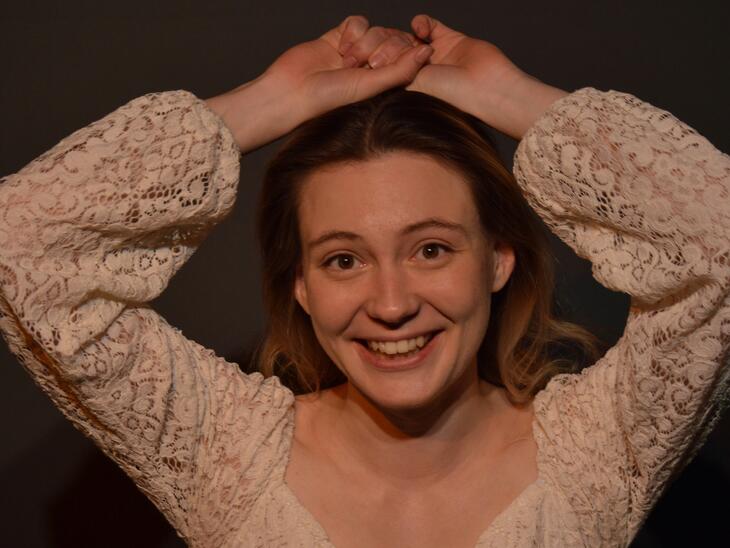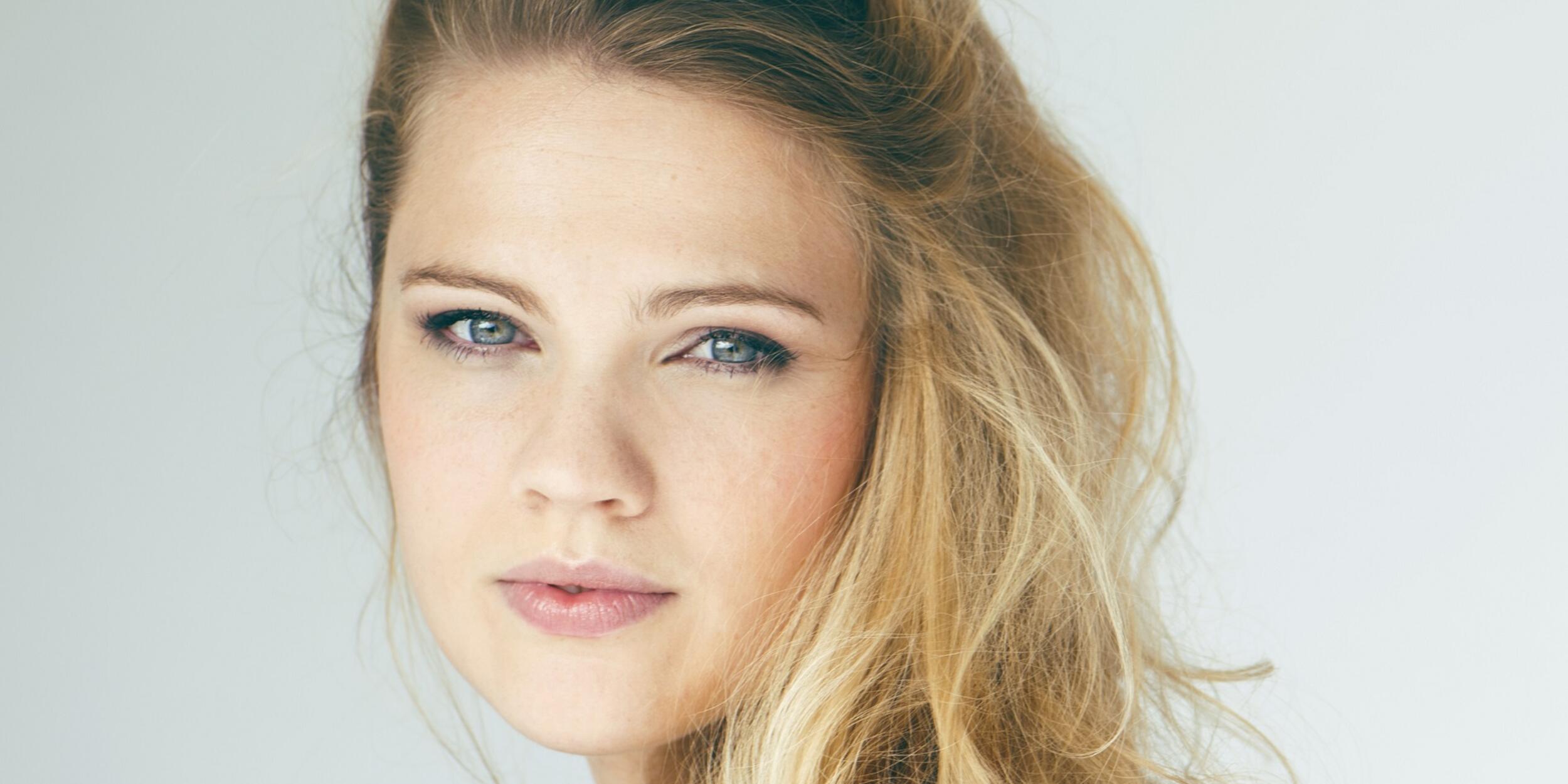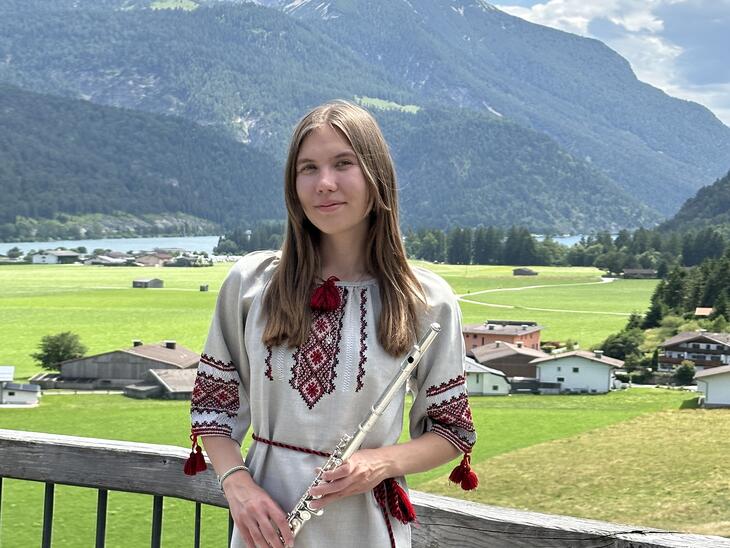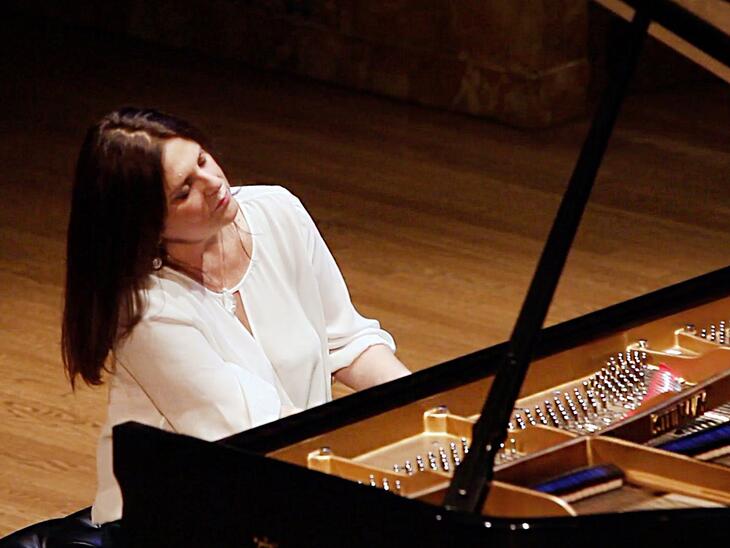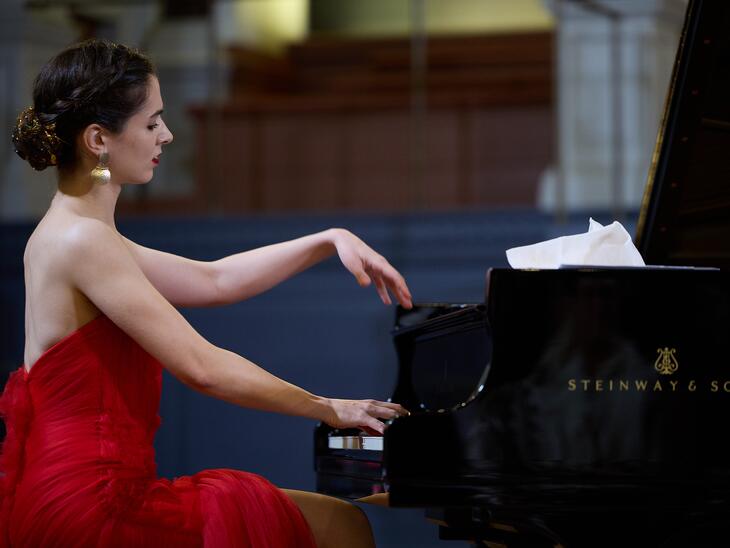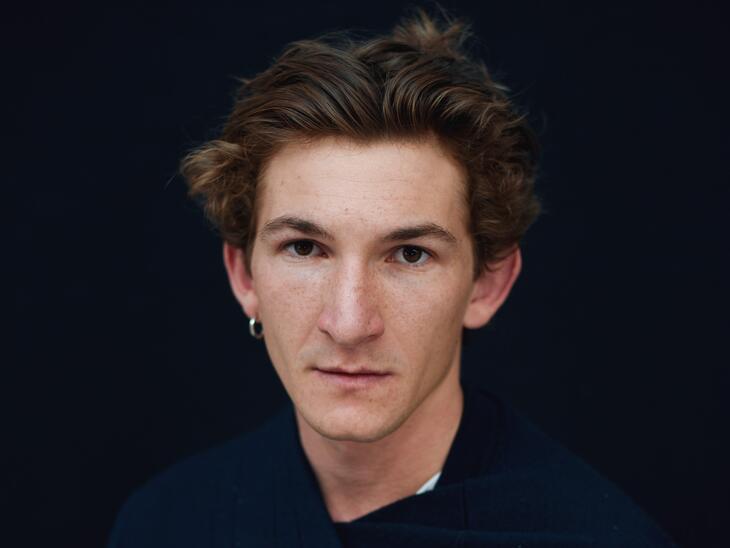How did you experience the Corona period as an artist?
It was difficult because all the bans came so quickly and suddenly and you couldn't adjust to them at all. You were suddenly in the situation that you were no longer allowed to perform, that it was difficult at first to continue teaching your students. I have a teaching position at the Hanover University of Music, and there the semester also started later. You had to switch to online teaching very quickly. But I thought that was actually a pretty good thing, because at least it went on a little bit and there wasn't a complete hole. I did quite a bit of online teaching, private students and also the students in Hannover. That carried me through a lot. There were deadlines, I worked, of course I earned money. For freelance artists, of course, a lot has broken away and that will probably continue for quite a while. You have to fight quite a bit and who knows when concerts can take place again in a relatively normal form, so that it is bearable for organizers and artists. The lack of goals and concrete projects has been difficult in recent weeks. One was so used to working and preparing from concert to concert, from project to project. I was totally in the rhythm and then all that wasn't there anymore. But it was also nice to have some real time to work intensively on a piece. I also exchanged ideas with chamber music partners via Skype, since we couldn't rehearse. We analyzed pieces and went through them together. That was definitely profitable. Things continued, albeit in a more difficult form.
Are there already perspectives again? Do you already know whether the planned concerts in the summer, for example your China tour, will take place?
I have been in contact with the organizer in China, but he could not yet tell me exactly whether it can take place or not. I have received a very vague answer. In China everything is already running relatively normal again, but until a few weeks ago no concerts were allowed to take place and the complete classes at the universities were also running online. I don't know yet how fast this will change and I'm still a bit skeptical. Of course I hope that it will take place, but I also don't know yet whether I would be allowed to enter. It is also the case that students from Asia could not take advantage of the semester in Austria and Germany because they were not allowed to come here.
Are there other small projects or does it need more lead time for artists and organizers?
The lead time is probably needed by the organizers. I would love to play again next week….(laughs). I am in contact with the cultural office of my hometown. I was allowed to look behind the scenes a bit and was informed about what it would mean to organize an open-air concert, for example. I thought that could be a nice solution. But you also need a place that is suitable for a piano concert. The place must be able to be cordoned off, there must be enough people who controlled the hygiene and distance rules. That involves a lot of effort. Indoor concerts quickly shrink the audience and then it's a question of whether it's worth it for the organizer. However, I am planning to play a concert in my home country this summer. There is also a very nice platform, "CouponConcert", created by young German musicians. There, private individuals can book house concerts. The concept is "pay now, play later". So you get paid now and make dates for the end of 2020 or for 2021. I think that's quite a nice idea, because you get help now and you can redeem the coupon later. There are already some creative concepts and a house concert has already come about as a result, I think I can already play that in the summer. Everything else then from autumn, there are then again projects planned. Probably also in compliance with the hygiene and distance rules.
But that means that it was very important for you to have a second, pedagogical "mainstay"?
Absolutely. That became very clear to me now. I was so happy to be able to teach. I've always enjoyed doing it. I don't do it now because I think I have to, but because I really enjoy it. But of course I was very grateful for the teaching job and for other students I was able to attract. Teaching has carried me through this time.
What was the most difficult part of this situation for you?
For me personally, adjusting to the new daily rhythm and accepting that it just wasn't possible. In the beginning I thought you could do it this way or that way and then at some point you have to accept that it's not possible. Now there are the small glimmers of hope that you can perform with a reduced audience, which is very nice. It helped me to accept the situation then. But it took quite a long time. And I also found it very difficult to see that art had to justify itself to politics. That art is very much system-relevant (this unword), that one had to fight for it in such a way. And it also became clear that we artists perhaps lack a representation of interests. It's difficult because we are so many individuals and we have no one to stand up for us. And that, unfortunately, one was often unwise and concluded concerts without a contract and thus also had difficulties with the funding programs. That happened to many of my colleagues. It's also common to set concert dates and receive a fee, but not sign a contract. We can certainly learn from that.
How did you deal with the aid programs in Germany?
Of course, I kept myself informed and also had to realize that I was falling through the cracks. One of the emergency aid programs would only have covered operating costs, and what does a freelance artist have for operating costs? It's more about living expenses. It was also the case that it varied from state to state. Because of federalism, everything was very complicated. I checked with the state of Bavaria, and there is now a support program that doesn't just cover operating costs like the emergency aid, but also includes loss of fees and the like. You can apply for the program from May to September. I also know from colleagues that the help was very different. Sometimes it went very quickly and other times it took a very long time.
How did you get on with the practice? Did you have to be considerate of neighbors?
Thank God that here in my home I can theoretically practice day and night.
Did Corona also bring out positive things?
I realized that I appreciate small things much more now. I see how precious the freedom we had before was. I recently had another trio rehearsal and I so enjoyed the exchange with others and feeling the sound, it was so nice to make music with others again. Before, it was routine. The things that were taken for granted, one appreciates more now. I hope one can preserve that.
Is there anything you wish for your work?
That's a difficult question. Well, the interim solution with the small concerts and the hygiene rules is good for the moment, but it's not the same in the long run. I don't know how much concertgoers enjoy it. I recently saw a picture from the Musikverein with all the empty seats. That was quite strange. That's why I would like to see a vaccine or a drug so that the restrictions can be eased. Otherwise, I don't have any concrete ideas either. For me, streaming and all the online concerts are not an alternative. It's not comparable to a real cultural or concert experience. The alternatives, which were certainly good for bridging the gap, are not a solution in the long run. But this realization is also positive. People miss art and long for it. That's what I've always hoped.
Is there anything else you would like to leave us with?
On December 4, I may play the fourth Beethoven piano concert still in the Beethoven Year! In the Herkulessaal in Munich. I am particularly looking forward to this concert and very much hope that we will still be able to pay tribute to Beethoven in 2020. If it really takes place, I would like to invite everyone to it! On the way I would like to give everyone a lot of patience, understanding for each other, the different handling of the situation, everyone reacts differently, and that you still try to support each other.
